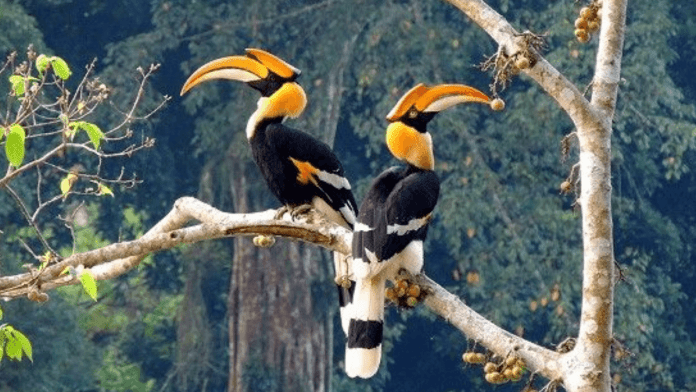News in Brief:
– Hornbills face population decline due to habitat destruction and poaching, jeopardising their crucial role in seed dispersal.
– Their decline threatens plant diversity and forest ecosystems, emphasising the urgent need for conservation efforts to protect these vital avian species.
Hornbills, often dubbed as the ‘farmers of the forest’, are facing a precarious situation according to a recent study conducted by the National University of Singapore (NUS).
The study, reported on by one news outlet, sheds light on the critical role these birds play in maintaining plant diversity, particularly in the realm of seed dispersal, and warns of potential consequences if their populations continue to dwindle.
Hornbills possess uniquely large beaks, making them adept at consuming and subsequently dispersing large fruits, a characteristic that sets them apart from other fruit-eating birds. The study, led by Assistant Professor Lim Jun Ying and first-year PhD student Liang Hanci, highlights the significance of hornbills in dispersing seeds across vast distances, thereby contributing to the growth and proliferation of plant species.
Despite their crucial role, hornbills face numerous threats, primarily habitat destruction and poaching, which have led to a decline in their populations. With 26 out of the 62 hornbill species listed as globally threatened or near threatened, the ramifications for plant diversity and forest ecosystems are profound.
The implications of dwindling hornbill populations extend beyond conservation concerns; they directly affect local farmers and forest health. As primary seed dispersers, hornbills facilitate the growth of hundreds of fruit tree species, essential for maintaining the vibrancy and diversity of tropical forests.
Professor Lim emphasises the urgent need for conservation efforts to protect hornbills and their habitats. By understanding their vital role in tropical ecosystems, there is hope for restoring seed dispersal functions and ensuring the longevity of diverse forest ecosystems.



